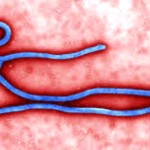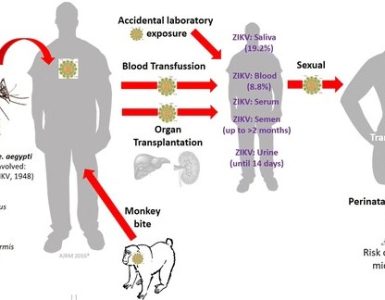 Over 3,000 people have died from the Ebola virus in West Africa, according to the World Health Organization. With no signs of the deadly virus slowing down, scientists and pharmaceutical companies are scrambling to find a vaccine.
Over 3,000 people have died from the Ebola virus in West Africa, according to the World Health Organization. With no signs of the deadly virus slowing down, scientists and pharmaceutical companies are scrambling to find a vaccine.
The WHO announced that 3,091 deaths have occurred in the region due to confirmed, suspected, or probable cases of Ebola, The Wall Street Journal reports. As of September 23, the majority of these deaths, 3,083, have occurred in the West African countries of Liberia, Guinea, and Sierra Leone. The report also indicates that the virus has spread to the Liberian county of Grand Kru, approaching the boarder of the Ivory Coast as well as expanding to the Kindia district in Guinea. So far, 6,574 total cases of Ebola have been reported. No new cases were reported in Nigeria or Senegal, where previous cases had been confirmed. From an unrelated Ebola outbreak in Central Africa, 42 people have died in the Democratic Republic of the Congo.
In the West African outbreak, 211 health care workers have died from Ebola so far. Liberia has been hit the hardest.
“What’s happening is the general collapse of the health care system [in Liberia] because physicians and nurses and other health workers are staying home,” Dr. Joia Mukherjee told WBUR. She is the chief medical officer at Partners In Health and a doctor who was in Monrovia, Liberia, for a recent Ebola response training program held by the Centers for Disease Control. “They feel unprotected and unprepared to deal with this — and they are.”
As health care workers struggle to keep up with the influx of patients and countries roll out educating their citizens on preventative measures, pharmaceutical companies are scrambling to find a vaccine. Reuters reports that GlaxoSmithKline, Johnson & Johnson, NewLink, Invio Pharmaceuticals, and Profectus Biosciences are all quickly moving into human trials for an Ebola vaccine, or plan to do so shortly. Development of a vaccine typically takes years, but the hope is to find something by the end of the year.
Quickly moving into human trials for a vaccine is a dangerous move with serious ethical questions. Human test subjects who are otherwise healthy could end up with a fatal dose of Ebola. There is also no time to accurately observe and determine side effects. What if the Ebola vaccine ends up killing people in a year’s time due to some unforeseen element? There are just too many variables to scientifically work through fast enough.
Pressure and demand for an Ebola vaccine isn’t expected to let up any time soon. The WHO predicts that the West African outbreak could expand to 20,000 cases by November. Fears of it spreading to other countries or other continents, like the United States, are also increasing. If that happens, what would you risk for an Ebola vaccine?
Source: INQUISITR

















